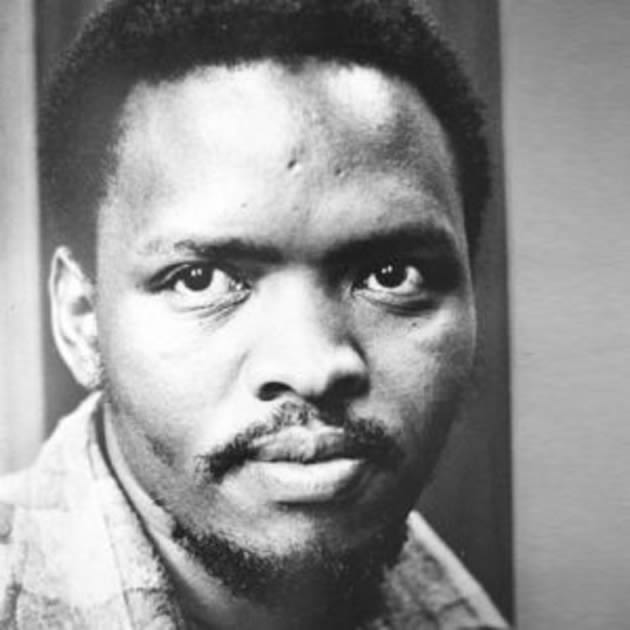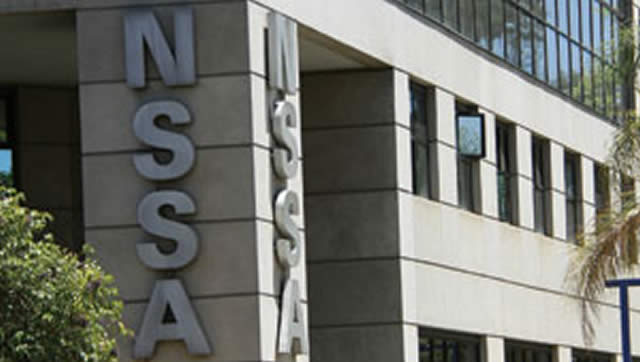Remembering Biko, Parirenyatwa’s dedication

Obi Egbuna Jnr Simunye—
Those African trailblazers of supreme intellect who invested many years in accurately chronicling the history of our genuine resistance in the southern region of Africa, like the late liberation icon Brigadier-General Hashim Mbita, were deeply concerned that we collectively embrace an analytical and ideological framework that ensured we would never forget South Africa’s liberation was guaranteed due to the immeasurable sacrifices made by their comrades in Mozambique, Angola, Zimbabwe, Namibia, Botswana and Tanzania.For this reason while Mother Africa’s children at home and abroad along with all those throughout the international community in solidarity with our struggle for liberation and human dignity, paid tribute and homage to the fallen South African hero and freedom fighter Steve Biko as December 18 marked his birthday. This provides a golden opportunity to also expose our people everywhere to the life and work of Zimbabwean national hero, Dr Tichafa Samuel Parirenyatwa.
The first significant connection between Comrades Biko and Parirenyatwa is that they both have a medical background, and arrived at the conclusion that Zimbabwe and South Africa needed them on the battlefield, fighting for national independence and self-determination, as opposed to treating the sick in the confines of a hospital.
Because President Mugabe and zanu-pf have always hammered home the point that Mother Africa’s greatest challenge is overcoming the brain drain, which is 100 percent compatible with the sentiment that drove Commandante Fidel Castro to remind the world that the Cuban doctors are indeed their country’s greatest army, it is of paramount importance to invoke the spirit of Comrades like Frantz Fanon, Agostinho Neto, Che Guevara who like Comrades Biko and Parirenyatwa, clearly understood liberating the oppressed was indeed the highest expression of healing the sick.
On a global level, the calendar has been universally accepted as an instrument that helps people remember things such as birthdays and wedding anniversaries, Mother Africa’s children decided a long time ago to use this vehicle to not only teach our children their history and culture, but ensure they selflessly pass it on to future generations, while making necessary parallels and connections that are Pan-Africanist in scope, content and character.
It is delightful to know when reflecting on our history we recognise that Comrade Biko was born in 1946, the same year that Malcolm X went to prison, falling victim to the blue collar crime cycle that is without question, which, based on situation and capacity, serves as a harsh reminder of what it was like for our ancestors who were transported from their sacred homeland in the bottom of dingy slave ships.
Comrade Biko’s lucid statement,”The most potent weapon of the oppressor is the mind of the oppressed” was in absolute harmony with the feelings of the Father of African History Dr Carter G Woodson who was born one day after Comrade Biko who stated, “When you control a man’s thinking you do not have to worry about his actions.”
From this type of political atmosphere Comrade Parirenyatwa spearheaded the efforts to establish a research unit inside zapu that guaranteed those who joined the ranks of struggle embraced the short term and long term objectives of the Second Chimurenga.
This further explains and affirms that while the birthplace of Comrade Biko gained its political independence 22 years ago, the work required for Africans everywhere to complete the process of decolonisation may perhaps bear fruit way down the line in history. However, fire in our bellies should be ignited instead of leaving us apathetic and demoralised.
We will be historically uplifted when realising that Comrade Parirenyatwa qualified to become Zimbabwe’s first African doctor in 1957, the same year that Osagyefo Dr Kwame Nkrumah and the Convention People’s Party rid Ghana of the shackles of British colonialism. It was not by accident that President Mugabe, while teaching at St Mary’s College in Takoradi, Ghana, first became in tune with his African fighting spirit. Comrade Biko entered the non-European section of the University of Natal Medical School in 1966, the same year Osagyefo Kwame Nkrumah was overthrown by the CIA and British intelligence.
Our illustrious history has shown us through time the immeasurable value of recognising when freedom fighters of the highest order derive from a bloodline that demonstrates and explains, why when confronting colonialism and imperialism, choosing the self-destructive path of conformity and betrayal, were never viable options.
In the case of Comrade Parirenyatwa’s family tree, he is the great grandson of Chief Chingaira, who fought alongside Mbuya Nehanda during the First Chimurenga. Comrade Parirenyatwa’s mother was from the Tangwena nation who, under the leadership of Chief Rekayi Tangwena, resisted the Rhodesian Government’s desire to confiscate their land to further enhance their expansionist exploits. This explains why Comrade Parirenyatwa’s son Dr David Parirenyatwa, the current Minister of Health and Child Care, is so loyal and patriotic to Zimbabwe’s Government and people.
Both Comrades Biko and Parirenyatwa are products of the student movement, while Comrade Biko played a role in propagating the concept of Black Consciousness and creating the South African Student Organisation in 1968, it should be noted that Comrade Parirenyatwa cut his teeth in struggle when attending Fort Hare University in South Africa, which was without question the official training ground for nationalist and Pan Africanist resistance in the SADC region of Mother Africa.
Since many so-called African-Americans first became familiar with Chief Albert Luthuli for organising a bus boycott in South Africa similar to the one organised by Dr Martin Luther King and the Montgomery Improvement Association, let it be known that Comrade Parirenyatwa was not only involved in the ANC Youth League, but played a role in Chief Luthuli becoming its leader in 1952.
For any African to say that the work and influence of Comrades Biko and Parirenyatwa angered the Rhodesian and South African authorities, is not only to downplay their impact but to overlook the barbarism and viciousness of the political culture that best defines the legacies of the Rhodesian and Afrikaner invaders.
While US-EU imperialism recognises September 11 as the day they focus on the 9-11 attacks, we must ensure African children never forget that Comrade Biko was arrested under the guise of the apartheid regime’s terrorist act of 1967, that resulted in him being brutally tortured for 22 hours during interrogation, which was followed up by driving him while naked and manacled for 680 miles where he was pronounced dead in Pretoria, South Africa.
The assassination of Comrade Biko was a continuation of the terrorist culture that claimed the life of Comrade Parirenyatwa 15 years earlier, when Rhodesian security agents took his precious life in cold blood, and attempted to frame that this tragic loss stemmed from a car accident.
While so many years have passed, the African world is obligated to not only celebrate the life but continue the work of two young giants who we lost at the tender ages of 30 and 35, that without question left an indelible mark on the history of our beloved mother continent.
Obi Egbuna Jnr is the US Correspondent to The Herald and the External Relations Officer of the Zimbabwe Cuba Friendship Association. His email is [email protected] <mailto:[email protected]>









Comments